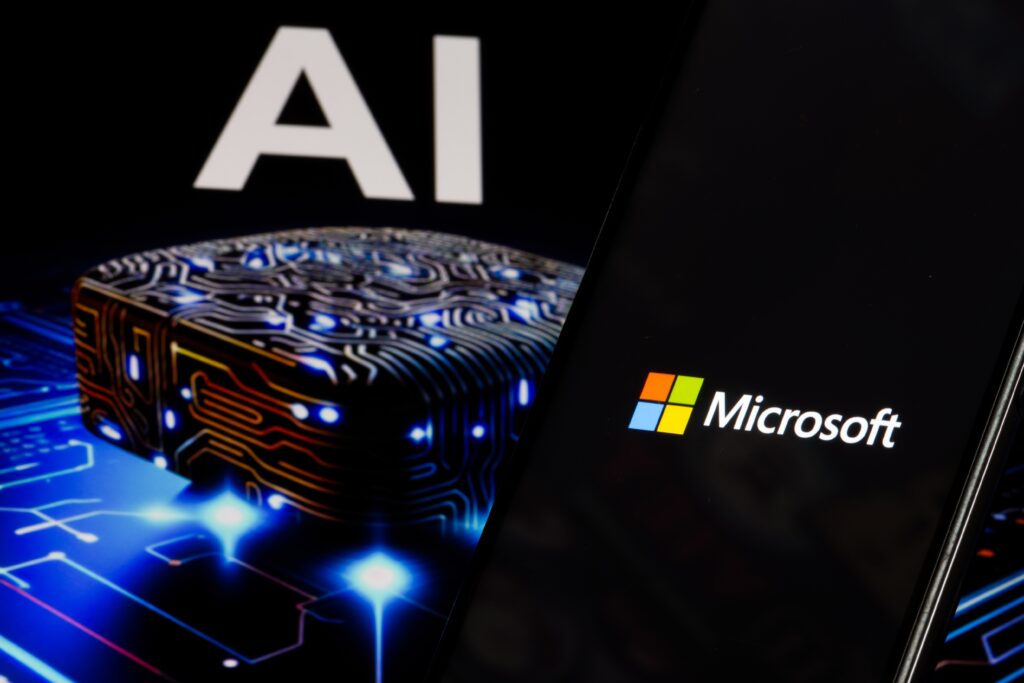In the coming years, Microsoft believes every worker will manage AI agents instead of doing traditional tasks themselves. The company has introduced the idea of “frontier firms,” where humans will build, guide, and monitor smart AI agents. This bold prediction was shared by Microsoft executive Jared Spataro in a new blog post.
He said every employee should start thinking like the CEO of an AI-driven startup. This idea is part of Microsoft’s broader view of how the workforce is changing fast.
The company’s latest Work Trend Index report explains that businesses will soon rely on “on-demand intelligence.” AI will answer questions, handle sales data, and create financial forecasts within seconds. Microsoft predicts that within five years, most businesses will shift into these so-called frontier firms.
These future companies will scale faster, stay flexible, and create value quicker than traditional ones.
The Three Phases of AI in the Workplace
Microsoft sees the move toward AI-powered workplaces happening in three phases. First, every employee will use an AI assistant. These assistants will help with tasks like scheduling, answering emails, or finding information fast.
Second, AI agents will evolve into independent digital colleagues. They will be able to take on entire projects by themselves. Workers will no longer need to micromanage these tasks.
Finally, workers will become leaders who guide teams of AI agents. They will set goals, monitor progress, and step in only when necessary. Instead of doing the work, human employees will supervise and shape the outcome.
Microsoft compared this to how software development has evolved. Coders once wrote every line of code themselves. Now, AI can generate code, leaving humans to focus on solving bigger problems.
For example, in supply chain management, AI agents could run operations from end to end. Humans would focus on building strong relationships with partners and improving strategies.
How AI Agents Could Change the Job Market
While AI brings exciting opportunities, it also raises serious concerns. Microsoft stresses that AI will remove boring tasks and boost productivity. Workers will spend less time on paperwork and more time on meaningful work. However, experts warn that the shift could lead to major job losses.
The UK’s International AI Safety Report sounded alarms about the risks. It warned that smart AI agents could take over many current roles, leaving workers behind.
The International Monetary Fund (IMF) shared similar concerns. It found that 60% of jobs in advanced economies like the US and UK are exposed to AI. Half of these jobs could see negative impacts.
In the UK, the Tony Blair Institute predicted that up to three million private sector jobs could be displaced. However, it also suggested that many new jobs could be created. So, the final impact may not be as bad as it seems.
Experts like Dr. Andrew Rogoyski from the Surrey Institute for People-Centred AI also urged caution. He warned that heavy reliance on AI could erode important human skills. Companies still need people for innovation, building trust, and solving unexpected problems.
Microsoft’s Vision Faces Both Hope and Uncertainty
Microsoft is not alone in seeing AI as the future of work. Other big tech companies, like Google and Amazon, are also investing heavily in AI tools.
However, there is still uncertainty about how this future will unfold. If done right, AI could help workers be more creative, efficient, and happy. If handled poorly, it could widen gaps between workers and leave many behind.
Microsoft’s call to action is clear: workers must adapt. They should learn how to manage AI agents, guide digital teams, and focus on skills that AI cannot replace.
As Jared Spataro put it, every worker should prepare to lead—not just to work.
The next few years will show whether AI becomes a true partner to humans—or replaces too much of what makes work meaningful.


